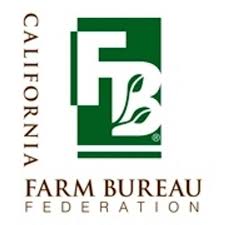
Senate Bill 1, approved by the Legislature last week, seeks to raise $52 billion in fuel and vehicle taxes to fund road and other transportation repairs and improvements.
California Farm Bureau Federation President Paul Wenger, who farms near Modesto, foresees a hit to his and other farmers' balance sheets.
"Not only will we pay for our vehicles, but everyone we get supplies from, or truckers that we hire to move our products and livestock, will pass those taxes on to us," Wenger said.
"As always, farmers and ranchers bear a disproportionate burden of increased costs, like taxes, because we can't pass those on," Wenger said. "Farmers and ranchers purchase our inputs on a retail level and sell wholesale."
Chris Torres, who operates a rice farm and a trucking company in Colusa County, said the increased taxes will make it more expensive to operate, and come at an especially difficult time.
"The farm economy right now—at least in what I do, the rice farming business—is extremely poor because our dollar's so strong abroad," Torres said, "so we're not able to get the money out of the marketplace so we can cover these costs.
"All this stuff that comes out of Sacramento is not thought through, and it's not thought through from a business standpoint," Torres said.
The law drew opposition from upward of two dozen agricultural groups, including CFBF. Cynthia Cory, CFBF environmental affairs director, said the fuel-tax increases will be especially difficult for rural residents.
"The folks that travel the most, which are the folks in the rural area, will pay the most," she said. "And with the way the formulas are set, it doesn't mean that what you earn in your area goes back to your area to improve those roads. That was a big part of the problem."
Cory said SB 1 also requires the state Department of Motor Vehicles by Jan. 1, 2020, to confirm that commercial vehicles are compliant with or exempt from the Truck or Bus Rule for air quality before the vehicle can be registered or sold. The Truck and Bus rule has been in place since 2009 and has required replacement or retrofit of diesel trucks based on the size and age of the engine.
Proposed amendments to earlier legislation that would have provided protections for agricultural trucks were not included in SB 1, Cory said, adding that Farm Bureau is "seeking other ways to have our concerns addressed."
SB 1 maintains a provision allocating unclaimed gas tax money to county agricultural commissioners, much to the relief of Jim Allan, legislative chairman of the California Agricultural Commissioners and Sealers Association.
Farmers who spend money at gas stations and use the fuel offroad, such as in tractors, all-terrain vehicles and other farm equipment, can use their Form 540s to get that tax money back, Allan said. But most don't, and much of that money is sent to county agricultural commissioners to help them with their work.
"The agricultural part of it is a major funding source for ag commissioners," said Allan, who's also the Solano County agricultural commissioner. "We've been getting 39 to 40 cents on the dollar match for county general fund dollars that are spent in agricultural programs at ag commissioners' offices."
The money goes to pest-detection and pest-eradication programs, Allan said, as well as pesticide-use enforcement, inspections at terminals, farmers markets and other programs.
"Without the gas-tax match to the county general fund revenues, we couldn't afford to do the programs that we do," Allan said.
Effective Nov. 1, SB 1 will:
- Raise the diesel fuel excise tax by 20 cents per gallon.
- Raise the gasoline excise tax by 12 cents per gallon.
- Raise the sales and use surtax on diesel fuel from 1.75 percent to 5.75 percent.
- Index diesel and gas taxes to inflation beginning July 1, 2020.
- Charge a Transportation Improvement Fee ranging from $25 to $175, depending on the vehicle's value, as of Jan. 1, 2018.
- Charge zero-emission vehicles—such as the Tesla, Nissan Leaf, Chevy Volt and others—a $100 annual fee beginning in 2020.
Reprinted with permission: California Farm Bureau Federation








